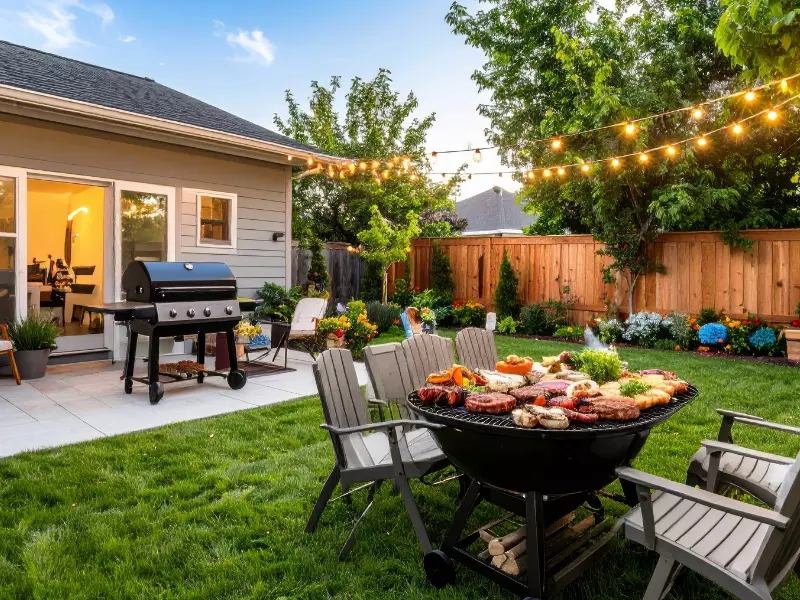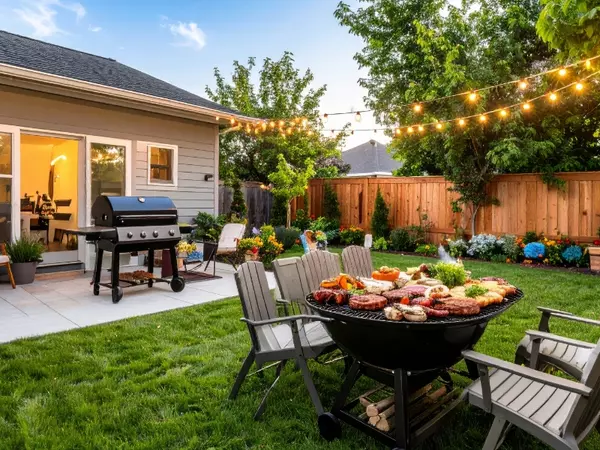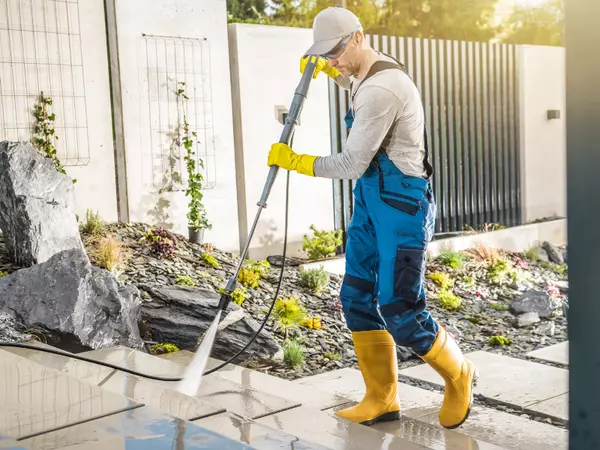Conservation Tips for Summer Landscaping

Create a yard that’s beautiful, sustainable, and built to thrive in the summer heat.
Summer’s longer days and warmer weather are perfect for refreshing your outdoor space. But with rising temperatures, drought concerns, and water restrictions in many areas, smart landscaping is more important than ever. Sustainable choices can protect the environment, lower your bills, boost curb appeal, and even increase your home’s value.
Below are simple, effective ways to make your summer landscaping both eco-friendly and eye-catching.
1. Plant with Pollinators in Mind
Pollinators—like bees, butterflies, and hummingbirds—are essential to healthy ecosystems. More than 75% of the world’s food crops depend on them. You can support pollinators by:
-
Planting native flowers that bloom throughout the season
-
Skipping pesticides and choosing organic care
-
Adding small features like water dishes, hummingbird feeders, or bee houses
Not only will your yard support biodiversity, but you’ll also enjoy a vibrant, lively garden all season long.
2. Choose Native & Drought-Tolerant Plants
Native plants are adapted to your region’s climate and soil, meaning they need less water, fertilizer, and maintenance. They:
-
Conserve water and reduce chemical use
-
Provide food and habitat for local wildlife
-
Resist pests and disease naturally
For maximum water savings, select xeric, drought-resistant varieties. They’re as beautiful as they are resilient.
3. Water Smarter
Swap out traditional sprinklers for drip irrigation or soaker hoses to deliver water straight to plant roots. Add a timer and water in the early morning to reduce evaporation. Deep, infrequent watering encourages stronger root growth.
Other tips:
-
Use 2–3 inches of mulch to retain soil moisture and regulate temperature
-
Group plants with similar water needs
-
Collect rainwater in barrels for reuse
4. Rethink Grass
Traditional lawns can be water-hungry. Consider alternatives like:
-
Clover, creeping thyme, or native grasses
-
Moss for shady areas with light foot traffic
-
Permeable hardscaping—gravel paths, stone patios—to reduce water use and add charm
Even partial lawn replacements can lower water bills and maintenance time.
5. Compost Yard Waste
Turn grass clippings, leaves, and plant trimmings into nutrient-rich compost. Composting naturally enriches your soil, reduces landfill waste, and eliminates the need for chemical fertilizers. Many communities also offer compost pickup or drop-off programs.
Keep It Growing All Season
Sustainable landscaping isn’t a one-time project—it’s ongoing care. Create a seasonal maintenance checklist for weeding, mulching, pruning, and checking irrigation systems.
With just a few intentional changes, you can create an outdoor space that’s environmentally friendly, efficient, and beautiful all summer long.
Categories
Recent Posts

REALTOR® | VA, DC, MD | License ID: 0225228079
+1(571) 276-1206 | arshia.kia@exprealty.com





